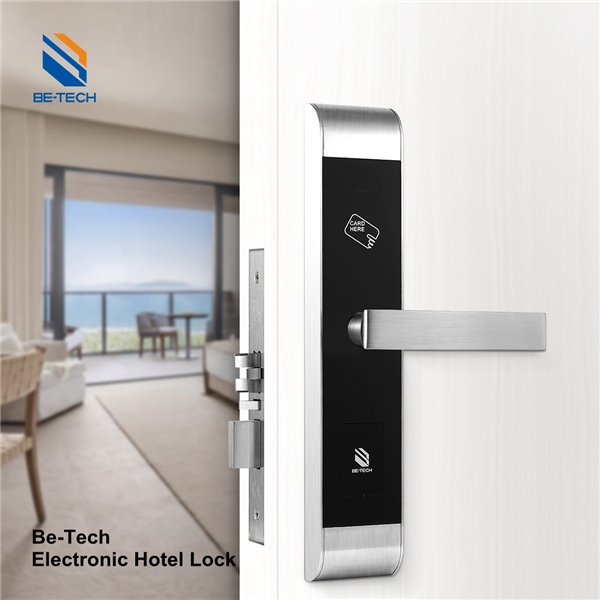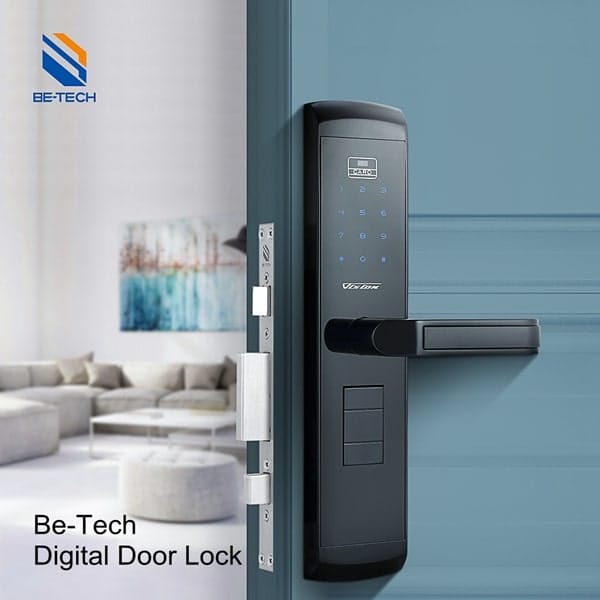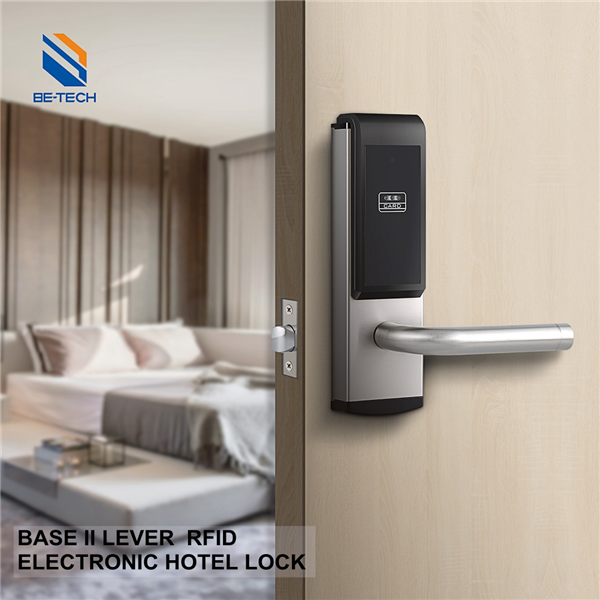In the ever-evolving landscape of commercial property security, key fob entry systems have emerged as a leading solution, offering a blend of convenience and enhanced security. For hoteliers and property managers, understanding the intricacies of these systems is crucial for making informed decisions that safeguard their properties and enhance guest experiences. This article delves into the key aspects of key fob entry systems, addressing potential challenges and providing practical insights tailored to the hospitality industry.
Enhanced Security
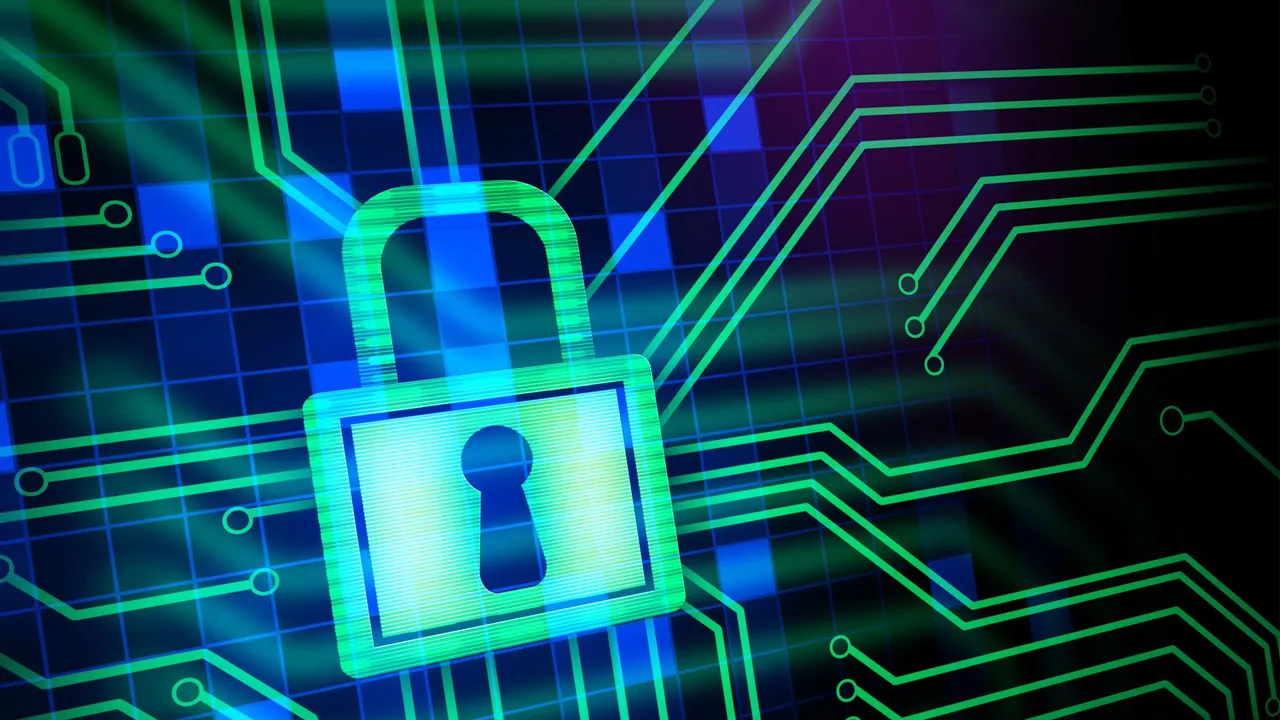
Encryption and Data Protection
Key fob entry systems utilize advanced encryption techniques to protect access data. This ensures that unauthorized individuals cannot easily replicate or intercept the signals transmitted between the key fob and the reader. For instance, Be-tech Locks, a leading supplier of hotel door lock systems, emphasizes the importance of robust encryption in their RFID hotel locks to prevent security breaches.
Remote Deactivation
One of the standout features of key fob systems is the ability to remotely deactivate lost or stolen fobs. This is particularly beneficial in a hotel setting, where guests frequently lose their keys. By deactivating a lost fob, hotels can immediately eliminate the risk of unauthorized access, thereby maintaining a secure environment for all guests.
Audit Trails and Monitoring
Key fob systems can log every access attempt, creating an audit trail that can be invaluable for security audits and investigations. For example, if a security incident occurs, hotel management can review the access logs to determine who entered specific areas and when. This level of monitoring enhances overall security and accountability.
Convenience
Ease of Use
Key fobs are designed to be user-friendly. They are small, lightweight, and can be easily attached to keychains or lanyards. This convenience is a significant advantage for hotel guests, who can carry their room access fob effortlessly. Be-tech Locks offers a range of RFID key card locks that are intuitive and easy to use, ensuring a seamless experience for guests.
Remote Management
Hotel managers can manage access permissions remotely through software interfaces. This allows for quick adjustments, such as granting or revoking access to specific areas without the need for physical key exchanges. For instance, if a guest extends their stay, the front desk can easily update their access permissions without requiring the guest to visit the reception.
Integration with Other Systems
Key fob entry systems can integrate with other security systems, such as video surveillance and motion sensors. This integration creates a comprehensive security network that enhances overall property safety. For example, if a key fob is used to access a restricted area, the system can trigger nearby cameras to start recording, providing a visual record of the entry.
Applications in Hotels
Guest Room Access
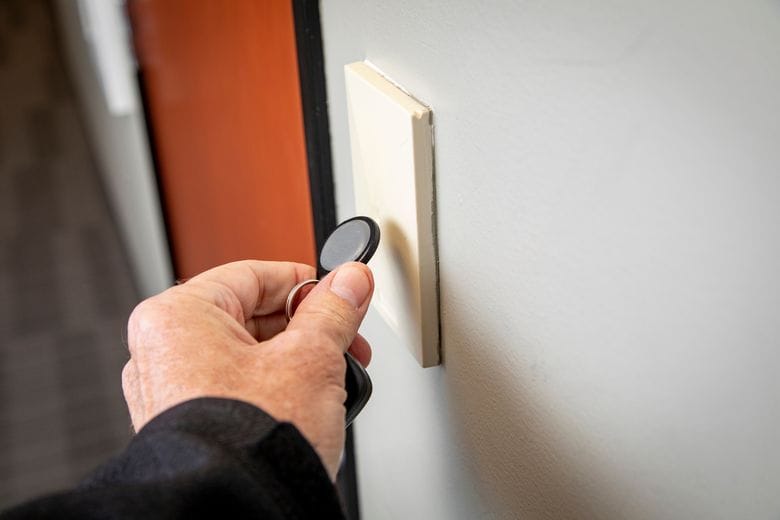
Key fobs can be used to grant guests access to their rooms and common areas like gyms and pools. This not only enhances security but also improves the guest experience by providing a modern and convenient access method. Be-tech Locks’ RFID hotel locks are specifically designed to meet the needs of the hospitality industry, offering reliable and secure access solutions. By eliminating the need for traditional keys, key fobs reduce the risk of lost or stolen keys, which can be a significant security concern. Additionally, key fobs can be easily deactivated and reprogrammed, providing a flexible and efficient solution for managing guest access. This technology also allows for seamless integration with other hotel systems, such as guest management and billing, further enhancing the overall guest experience.
Staff Access Control
Access to maintenance rooms, offices, and storage areas can be restricted to authorized personnel only. This ensures that sensitive areas are protected from unauthorized access, reducing the risk of theft or vandalism. By using key fob systems, hotels can easily manage and monitor staff access, ensuring that only authorized individuals can enter restricted areas. Modern key fob systems offer detailed access logs, allowing hotel management to track who accessed specific areas and when. This level of oversight not only enhances security but also helps in identifying and addressing any potential security breaches promptly. Furthermore, role-based access control can be implemented, ensuring that staff members only have access to areas necessary for their job functions, thereby minimizing the risk of unauthorized access.
Emergency Protocols
Key fob systems can be designed to unlock doors automatically during emergencies, ensuring safe evacuation. For example, in the event of a fire, the system can automatically unlock all exit doors, allowing guests and staff to evacuate quickly and safely. This feature is crucial for maintaining safety and compliance with fire safety regulations. Advanced key fob systems can be integrated with the hotel’s fire alarm system, ensuring that doors are unlocked as soon as an alarm is triggered. This integration not only enhances safety but also ensures compliance with local fire safety codes. Additionally, these systems can be programmed to provide first responders with immediate access to all areas of the hotel, facilitating a more efficient emergency response.
Potential Challenges and Solutions
Understanding RFID Technology
Challenge: Grasping how RFID (Radio Frequency Identification) technology works can be complex.
Solution: RFID key fobs communicate with readers via radio waves. When a fob is near a reader, it transmits a unique code that the reader verifies before granting access. This process is secure and efficient, ensuring that only authorized fobs can unlock doors.
Managing Multiple Access Levels
Challenge: Configuring different access levels for various users (guests, staff, contractors) can be daunting.
Solution: Use software to assign and manage access permissions. For example, guests can have access to their rooms and common areas, while staff can access maintenance and administrative areas. This flexibility allows hotels to tailor access control to their specific needs.
Ensuring System Reliability
Challenge: Ensuring the system remains operational during power outages or technical failures.
Solution: Implement backup power solutions and regular maintenance checks. Some systems also offer offline functionality, allowing doors to be unlocked even if the main system is down. This ensures continuous security and access control, even in challenging situations.
Practical Impact on Hotel Operations
Security Protocols
Enhanced Monitoring: Use audit trails to monitor access and identify potential security breaches. This proactive approach helps in maintaining a secure environment for guests and staff.
Emergency Preparedness: Ensure that key fob systems are integrated with emergency protocols to facilitate quick evacuations. This integration is crucial for maintaining safety and compliance with regulations.
Purchasing Decisions
Vendor Selection: Choose vendors that offer robust encryption and remote management capabilities. Be-tech Locks, for example, provides high-quality RFID hotel locks that meet these criteria, ensuring both security and convenience.
Cost Considerations: Balance the initial installation costs with long-term savings from reduced key replacement and enhanced security. Investing in a reliable key fob system can lead to significant cost savings over time.
Installation Procedures
Professional Installation: Hire experienced professionals to install and configure the system, ensuring all components work seamlessly together. Proper installation is critical for the system’s reliability and effectiveness.
Training: Provide training for staff on how to use and manage the key fob system effectively. Well-trained staff can ensure the system is used to its full potential, enhancing overall security and efficiency.
Actionable Steps for Hotel Lock Buyers
Assess Security Needs
Action: Conduct a comprehensive security audit to identify areas within the hotel that require enhanced access control. This audit should cover guest rooms, common areas, and sensitive locations such as server rooms and maintenance facilities.
Next Step: Choose a key fob system that offers robust encryption and remote deactivation features. This ensures that the system can effectively protect against unauthorized access and can be managed remotely, providing an additional layer of security. For instance, RFID key fob systems are highly recommended due to their ability to store data securely and their ease of use for both guests and staff.
Evaluate Vendor Options
Action: Research and compare different vendors based on their product features, customer support, and pricing. Look for vendors that offer a variety of lock types, such as magnetic stripe, RFID, and mobile credential locks, to find the best fit for your hotel’s specific needs.
Next Step: Select a vendor that provides comprehensive support and integration capabilities. For example, Be-tech Locks offers a range of RFID hotel locks that are well-suited for the hospitality industry, known for their reliability and ease of integration with existing hotel management systems. Additionally, consider vendors that offer training and ongoing support to ensure smooth implementation and operation.
Plan for Integration and Training
Action: Develop a detailed plan for integrating the key fob system with your existing security infrastructure. This plan should include timelines, resource allocation, and a step-by-step process for installation and testing.
Next Step: Schedule training sessions for staff to ensure they are proficient in using and managing the new system. This training should cover all aspects of the system, from basic operation to troubleshooting common issues. Ensuring that staff are well-trained will help in maximizing the system’s effectiveness and preparing them to handle any potential problems that may arise.
By understanding the intricacies of key fob entry systems and their practical applications in hotel operations, you can make informed decisions that enhance security and convenience for your property. Implementing these systems can lead to improved guest experiences, streamlined operations, and a safer environment for everyone. For example, key fob systems not only enhance security but also offer features like remote check-in and access to hotel amenities, which can significantly improve guest satisfaction.




